
The Enigmatic Splendor of Makgadikgadi Pans National Park
Discover the surreal beauty and rich cultural history of Makgadikgadi Pans National Park, where vast salt flats meet incredible wildlife migrations in Botswana.
Makgadikgadi Pans National Park, located in the heart of Botswana, is one of the largest salt flats in the world. The park, once an ancient lake, now provides a unique and otherworldly landscape. Its vast, shimmering salt pans stretch to the horizon, creating an ethereal scene that feels like another planet. The park is home to a surprising variety of wildlife, especially during the wet season when the pans fill with water. This seasonal transformation attracts thousands of migratory birds, including flamingos, and brings herds of zebras and wildebeests. Visitors have the chance to witness these impressive wildlife migrations against a surreal backdrop. Beyond the wildlife, Makgadikgadi Pans offers a rich cultural history. The area is home to the indigenous San people, who have lived here for thousands of years. Travelers can learn about their ancient traditions and survival skills in this harsh environment. A visit to Makgadikgadi Pans National Park is not just a trip to see wildlife; it's a journey into the past and an exploration of nature's raw beauty.
Local tips in Makgadikgadi Pans National Park
- Visit during the wet season (November to April) to see the pans filled with water and attracting wildlife.
- Pack light, breathable clothing and sunscreen to protect against the sun.
- Consider hiring a local guide to learn about the San people's culture and the area's unique ecology.
- Bring binoculars for bird watching, especially to observe the flamingos.
- Stay in one of the park's lodges or campsites to fully experience the serene night skies.
The Enigmatic Splendor of Makgadikgadi Pans National Park
Makgadikgadi Pans National Park, located in the heart of Botswana, is one of the largest salt flats in the world. The park, once an ancient lake, now provides a unique and otherworldly landscape. Its vast, shimmering salt pans stretch to the horizon, creating an ethereal scene that feels like another planet. The park is home to a surprising variety of wildlife, especially during the wet season when the pans fill with water. This seasonal transformation attracts thousands of migratory birds, including flamingos, and brings herds of zebras and wildebeests. Visitors have the chance to witness these impressive wildlife migrations against a surreal backdrop. Beyond the wildlife, Makgadikgadi Pans offers a rich cultural history. The area is home to the indigenous San people, who have lived here for thousands of years. Travelers can learn about their ancient traditions and survival skills in this harsh environment. A visit to Makgadikgadi Pans National Park is not just a trip to see wildlife; it's a journey into the past and an exploration of nature's raw beauty.
When is the best time to go to Makgadikgadi Pans National Park?
Iconic landmarks you can’t miss
Nata Lodge
Your gateway to Botswana's natural wonders, offering comfort and adventure near the Makgadikgadi Salt Pans and Nata Bird Sanctuary.
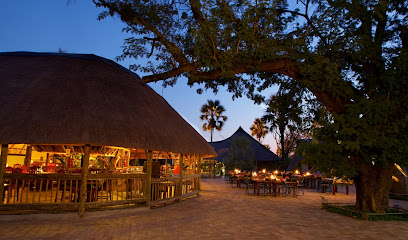
Planet Baobab
Discover a quirky desert oasis near Gweta, Botswana, offering adventure and cultural immersion on the edge of the Makgadikgadi Pans.

Central Kalahari Game Reserve
Discover Botswana's vast, remote Central Kalahari Game Reserve: a haven for wildlife, San culture, and unparalleled wilderness experiences.
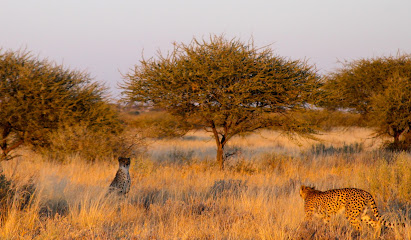
Eselbe Camp Backpackers
Eco-friendly backpacker haven in Nata, Botswana, offering affordable lodging & activities near the Makgadikgadi Pans & Nata Bird Sanctuary.
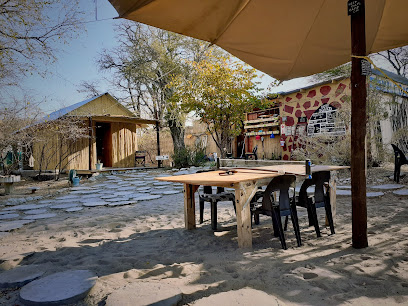
Nxai Pan National Park
Experience the dramatic transformation of Nxai Pan, Botswana, where ancient salt pans teem with wildlife and iconic baobabs dot the horizon.
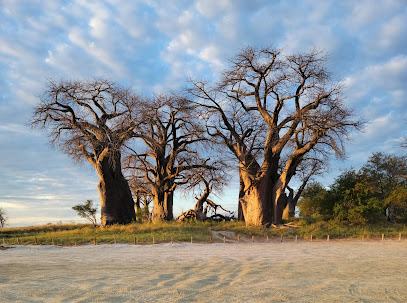
Makadikadi Basin
Explore the Makgadikgadi Pans: Where ancient landscapes meet unique wildlife in Botswana's vast salt wilderness.
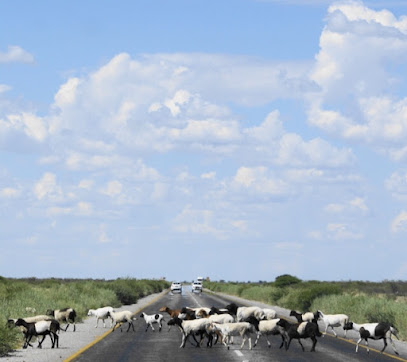
Jack's Camp
Experience the magic of Botswana's Makgadikgadi Pans at Jack's Camp: Luxury, adventure, and unique desert encounters await in this otherworldly landscape.
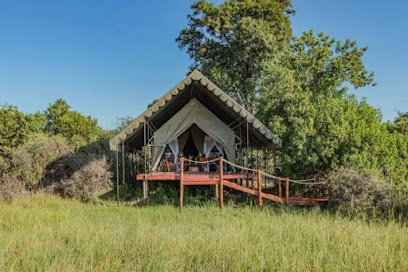
Sua Pan
Discover Sua Pan: Botswana's vast salt flats transform into a vibrant seasonal lake, teeming with wildlife and stunning vistas.
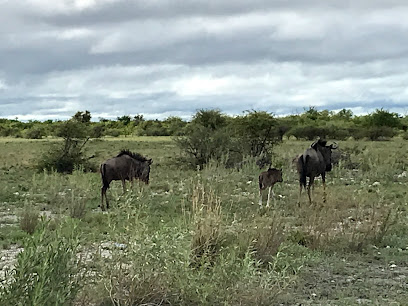
Nata Bird Sanctuary
Discover a community-driven conservation success story, home to a dazzling array of birdlife and stunning Makgadikgadi Salt Pan scenery.
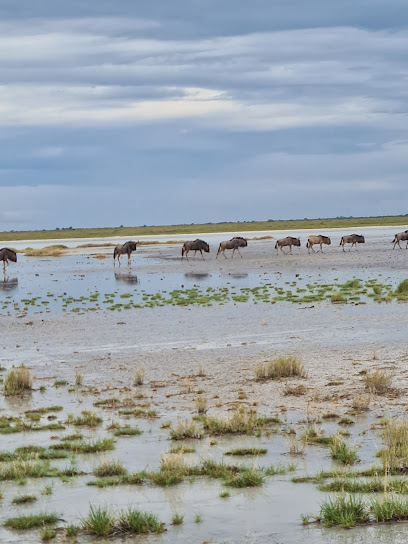
Camp Kalahari
Explore Botswana's Kalahari: Adventure, wildlife, and culture await at Camp Kalahari, your gateway to the Makgadikgadi Pans.

Kubu Island
Explore Kubu Island: A mystical granite outcrop in Botswana's Makgadikgadi Pans, adorned with ancient baobabs and Stone Age relics.
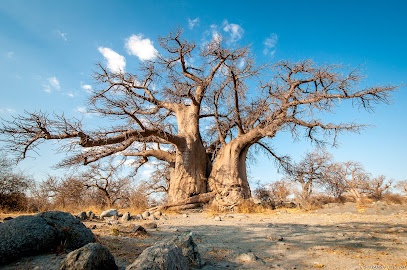
San Camp
Experience the magic of the Makgadikgadi Pans in luxurious style at San Camp, a unique desert oasis in Botswana's Kalahari.

Nwetwe Pan
Discover the stark beauty and abundant wildlife of Botswana's Nwetwe Pan, a seasonal wonder in the heart of the Makgadikgadi.
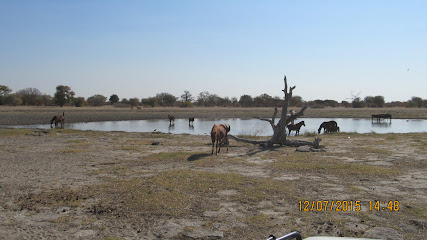
Makgadikgadi adventure camp
Your basecamp for exploring the Makgadikgadi Pans and the iconic Kubu Island in Botswana's Kalahari Desert.
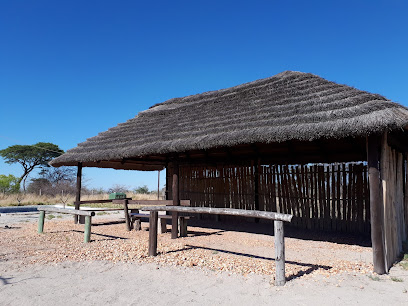
Makgadikgadi Pans
Explore Botswana's ancient salt pans: Witness dramatic seasonal transformations and unique wildlife in the heart of the Kalahari.
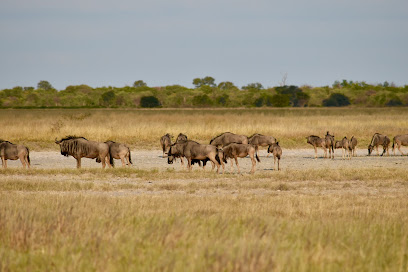
Unmissable attractions to see
Nata Lodge
Explore the Makgadikgadi Pans from this comfortable lodge near the Nata Bird Sanctuary, a gateway to Botswana's natural wonders.
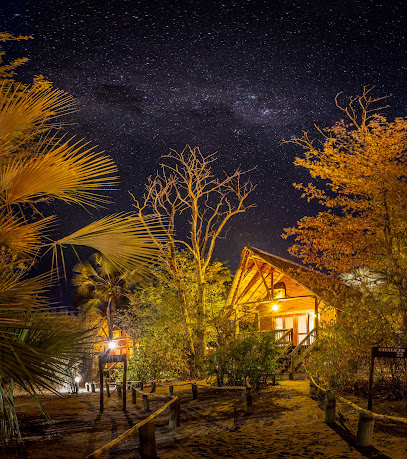
Orapa Game Park
Discover Botswana's hidden gem: Orapa Game Park, a thriving wildlife sanctuary born from diamond mining conservation efforts.
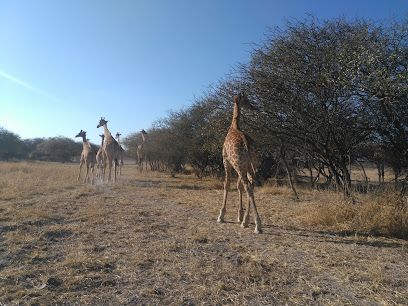
Makgadikgadi adventure camp
Your basecamp for exploring the Makgadikgadi Pans and the iconic Kubu Island, offering comfortable lodging and guided tours into the wild.
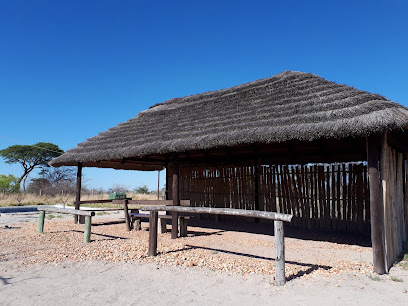
Makgadikgadi Pans
Explore the surreal beauty and vast landscapes of Makgadikgadi Pans, Botswana: wildlife migrations, ancient baobabs, and stark, stunning scenery.
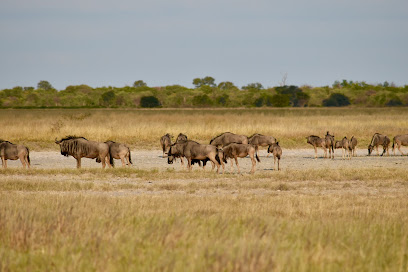
Nata Bird Sanctuary
Discover Botswana's avian paradise: A community-run sanctuary teeming with flamingos, pelicans, and diverse wildlife on the Makgadikgadi Pans.
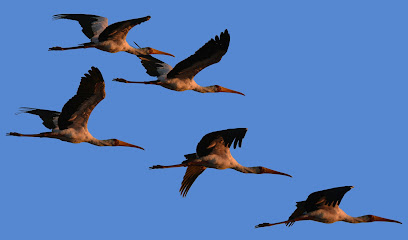
Essential places to dine
Nata Lodge
Experience tranquility at Nata Lodge – your gateway to Botswana's breathtaking landscapes and vibrant wildlife.
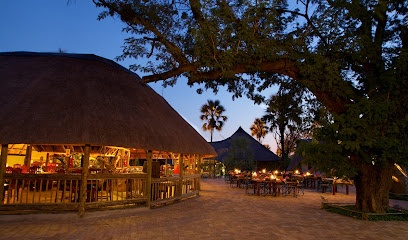
Makgadikgadi Pans National Park
Experience the stunning landscapes and rich wildlife of Makgadikgadi Pans National Park – a true gem in Botswana's wilderness.
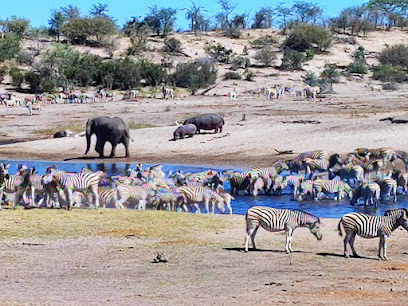
Eselbe Camp Backpackers
Experience nature's beauty at Eselbe Camp Backpackers - your ideal base for adventure in Botswana's stunning landscapes.
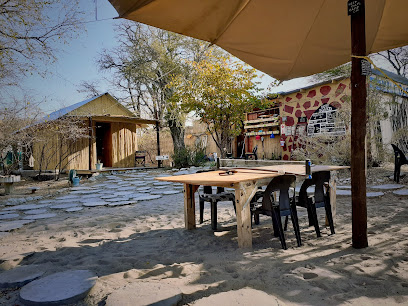
Pelican Lodge and Camping
Experience nature at its finest at Pelican Lodge and Camping in Nata, Botswana – where adventure meets tranquility.

Makgadikgadi Lodge
Discover tranquility and adventure at Makgadikgadi Lodge, your gateway to Botswana's stunning salt pans and diverse wildlife.
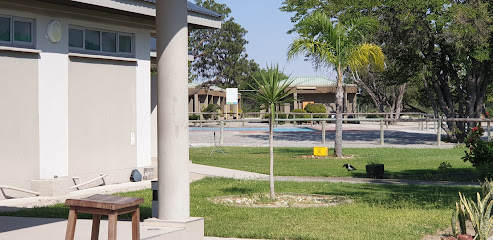
Makadikadi Basin
Explore Botswana's stunning Makadikadi Basin: a vast salt flat teeming with wildlife and breathtaking natural beauty.
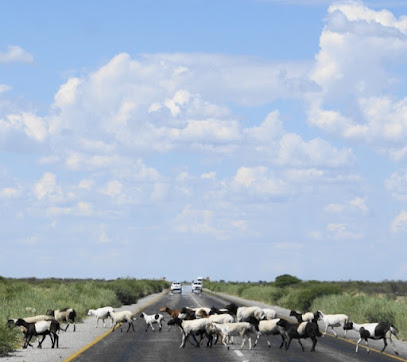
Jack's Camp
Discover luxury amidst Botswana's wilderness at Jack's Camp - where adventure meets serenity.
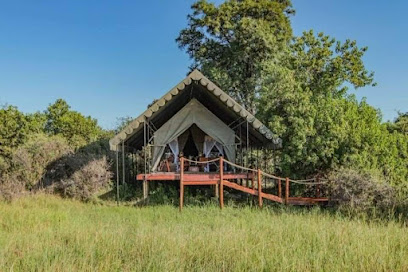
Camp Kalahari
Discover adventure and wildlife at Camp Kalahari - a perfect family getaway in Botswana's breathtaking desert landscape.

San Camp
Experience luxury lodging at San Camp in Botswana's Makgadikgadi Pans National Park - where stunning landscapes meet unparalleled comfort.

Makgadikgadi Pans
Explore the stunning beauty of Makgadikgadi Pans, a seasonal lake offering breathtaking landscapes and unique wildlife experiences in Botswana.
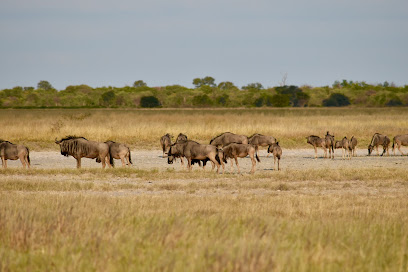
Markets, malls and hidden boutiques
Nata Lodge
Experience the beauty of Botswana at Nata Lodge, your serene oasis for adventure and relaxation amidst breathtaking landscapes.
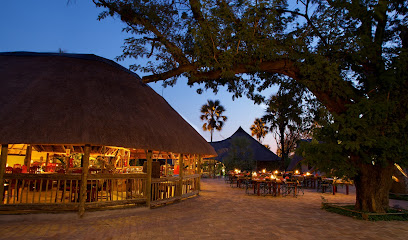
Planet Baobab
Experience the magic of Botswana at Planet Baobab, where adventure meets relaxation amidst stunning natural beauty.

Makgadikgadi Pans National Park
Explore the stunning landscapes and rich wildlife of Makgadikgadi Pans National Park, a true gem in Botswana's natural heritage.
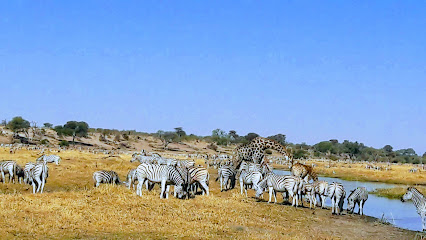
Gweta Lodge
Discover the serenity of Gweta Lodge, your ideal retreat in Botswana's stunning wilderness, blending comfort with unforgettable natural experiences.
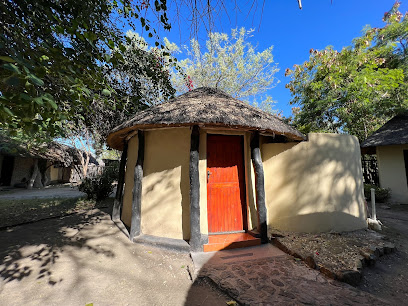
Makadikadi Basin
Discover the breathtaking beauty and unique wildlife of the Makadikadi Basin, a vast salt flat in Botswana offering adventure and serenity.
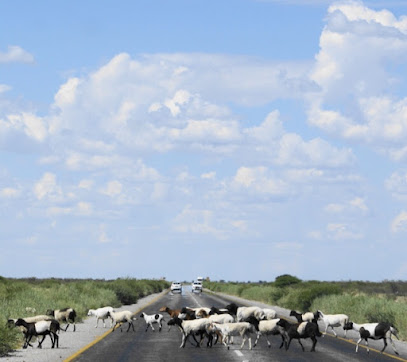
Khumaga Camp Sites
Experience the stunning beauty and tranquility of Khumaga Camp Sites, the ideal destination for nature lovers and adventure seekers in Botswana.
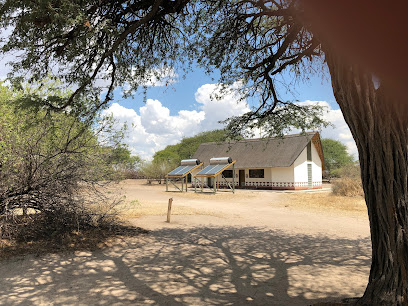
Jack's Camp
Experience the enchanting beauty of Botswana at Jack's Camp, where luxury meets adventure in the stunning Kalahari Desert.
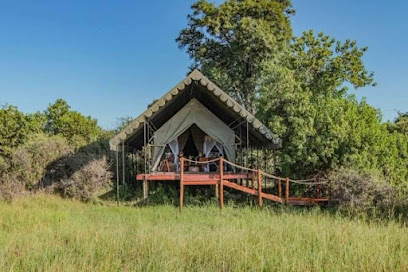
Nata Bird Sanctuary
Explore the Nata Bird Sanctuary, a serene haven in Botswana, where stunning landscapes and diverse bird species create a nature lover's paradise.
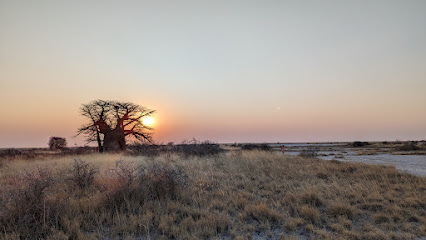
Meno-A-Kwena Tented Camp
Explore the unique beauty of Makgadikgadi Pans at Meno-A-Kwena Tented Camp, where adventure meets luxury in Botswana's breathtaking wilderness.

Camp Kalahari
Experience the magic of Botswana at Camp Kalahari, a children's camp offering adventure and wildlife encounters in the stunning Kalahari Desert.

San Camp
Discover the enchanting San Camp, where luxury meets the breathtaking wilderness of Botswana's Makgadikgadi Pans.

Makgadikgadi Epic
Discover the natural beauty and vibrant cultural scenes at Makgadikgadi Epic, Botswana's premier event venue in the heart of the Kalahari Desert.
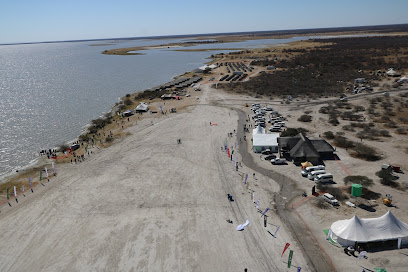
Makgadikgadi Pans
Discover the surreal beauty of Makgadikgadi Pans, a stunning seasonal lake and wildlife haven in Botswana's captivating landscape.
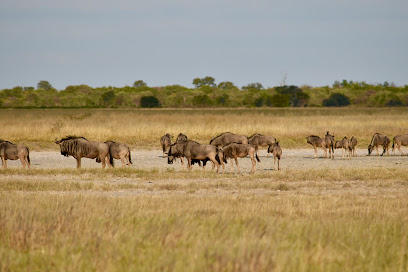
Essential bars & hidden hideouts
Elephant Sands Lodge
Discover the wild beauty of Botswana at Elephant Sands Lodge, where nature meets luxury and unforgettable experiences await.
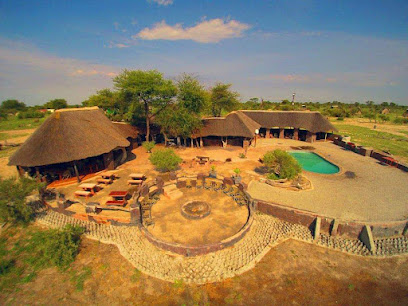
Nata Lodge
Experience the beauty of Botswana at Nata Lodge, an oasis of comfort and adventure surrounded by stunning landscapes and rich wildlife.
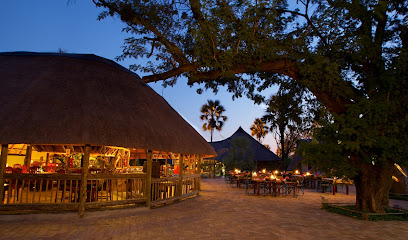
Planet Baobab
Discover the enchanting beauty of Botswana at Planet Baobab, your serene retreat near the breathtaking Makgadikgadi Salt Pans.

MAKUMUTU LODGE & CAMPSITE
Immerse yourself in nature at Makumutu Lodge & Campsite in Orapa, Botswana, where comfort meets adventure in a stunning wilderness.
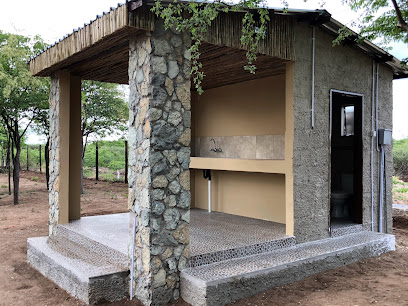
Makgadikgadi Pans National Park
Discover the stunning landscapes and rich wildlife of Makgadikgadi Pans National Park, a hidden gem in Botswana's natural wonders.
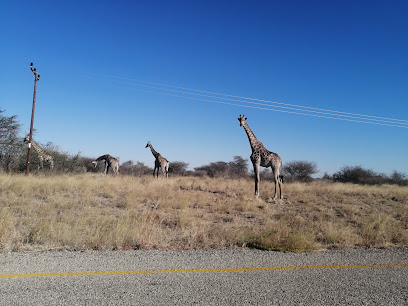
Pelican Lodge and Camping
Discover the wildlife and tranquility at Pelican Lodge and Camping, your serene getaway in the heart of Botswana's Nata region.

Eselbe Camp Backpackers
Discover camaraderie and adventure at Eselbe Camp Backpackers in Nata, the perfect base for exploring Botswana's stunning landscapes.
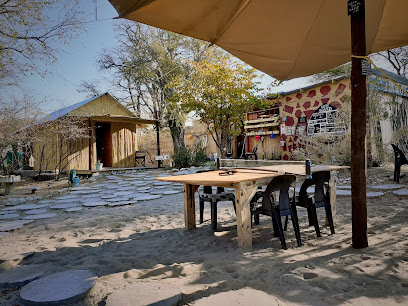
Makgadikgadi Lodge
Discover the tranquility of Makgadikgadi Lodge, your gateway to Botswana's stunning landscapes and rich wildlife.

Makadikadi Basin
Discover Botswana's breathtaking Makadikadi Basin, a stunning salt flat rich in wildlife and unique cultural experiences.
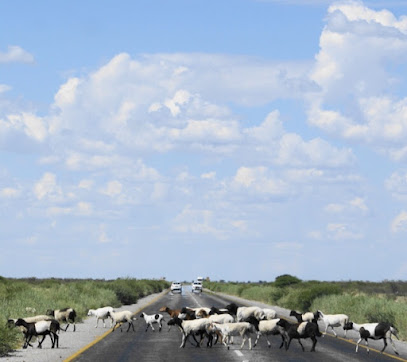
Jack's Camp
Discover the luxury and adventure of Botswana at Jack's Camp, where the beauty of nature meets exceptional hospitality.
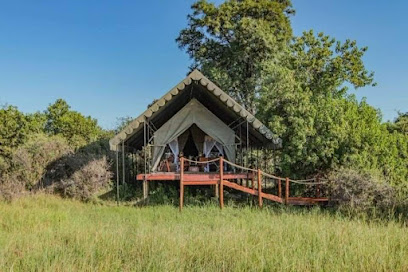
Leroo La Tau
Discover the enchanting Leroo La Tau Lodge, where luxury meets the wild beauty of Botswana's landscapes and wildlife.
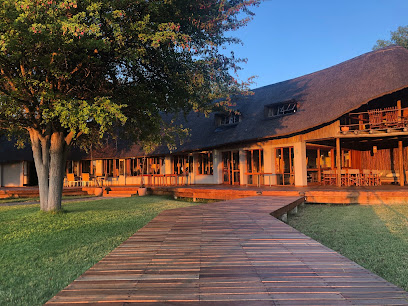
Meno-A-Kwena Tented Camp
Discover the serene beauty of Botswana at Meno-A-Kwena Tented Camp, where adventure and luxury meet in the heart of the Makgadikgadi Pans.

Camp Kalahari
Experience the magic of Botswana's Kalahari Desert at Camp Kalahari, where adventure, wildlife, and culture come together for families.

San Camp
Discover the magic of Botswana at San Camp, a luxurious lodging nestled in the heart of Makgadikgadi Pan National Park, perfect for nature lovers and adventurers.

Local Phrases about Makgadikgadi Pans National Park
-
- HelloDumela
[doo-meh-lah] - GoodbyeSala sentle
[sah-lah sehn-tleh] - YesEe
[ee] - NoNnyaa
[nn-yaah] - Please/You're welcomeKe kopa
[keh koh-pah] - Thank youKe a leboga
[keh ah leh-boh-gah] - Excuse me/SorryNtshwarele
[nt-shwah-reh-leh] - How are you?O tsogile jang?
[oh tsoh-heel-eh jahng] - Fine. And you?Ke tsogile
[keh tsoh-heel-eh] - Do you speak English?O bua se se tsona?
[oh boo-ah seh seh tsoh-nah] - I don't understandGa ke itse
[gah keh eet-seh]
- HelloDumela
-
- I'd like to see the menu, pleaseKe kopa go bona setlhare
[keh koh-pah goh boh-nah set-lah-reh] - I don't eat meatGa ke itse nyama
[gah keh eet-seh n-yah-mah] - Cheers!Phuthu!
[poo-too] - I would like to pay, pleaseKe kopa go reka
[keh koh-pah goh reh-kah]
- I'd like to see the menu, pleaseKe kopa go bona setlhare
-
- Help!Tlhopha!
[tloh-pah] - Go away!Itekela!
[ee-teh-keh-lah] - Call the Police!Bua le motsearele!
[boo-ah leh moh-tseh-ah-reh-leh] - Call a doctor!Bua le moradiare!
[boo-ah leh moh-rah-dyah-reh] - I'm lostKe lwaletse
[keh l-wah-leh-tseh] - I'm illKe le letho
[keh leh leh-thoh]
- Help!Tlhopha!
-
- I'd like to buy...Ke kopa go rekela...
[keh koh-pah goh reh-keh-lah] - I'm just lookingKe ipotsa
[keh ee-poh-tsah] - How much is it?E ka bokae?
[eh kah boh-kah-eh] - That's too expensiveKe tlhoka fa
[keh tloh-kah fah] - Can you lower the price?O ka kgona go dira setlhare se se dirwang?
[oh kah koh-nah goh dee-rah set-lah-reh seh seh dee-rah-ng]
- I'd like to buy...Ke kopa go rekela...
-
- What time is it?Ke nako eng?
[keh nah-koh ehng] - It's one o'clockKe nako ya moso
[keh nah-koh yah moh-soh] - Half past (10)Nako ya motheo
[nah-koh yah moh-teh-oh] - MorningMaitsebisa
[mah-eet-seh-bee-sah] - AfternoonMasometsi
[mah-soh-meh-tsi] - EveningMmala
[mmah-lah] - YesterdayGaele
[gah-eh-leh] - TodayNamane
[nah-mah-neh] - TomorrowLetsatsi
[leh-tsah-tsi] - 1Moja
[moh-jah] - 2Pele
[peh-leh] - 3Tlhatlhano
[t-lah-tlhah-noh] - 4Nnai
[nn-ny-ee] - 5Tlhano
[tlhah-noh] - 6Tlhano tse pedi
[tlhah-noh tseh peh-dee] - 7Nngwe
[nn-ng-weh] - 8Robedi
[roh-beh-dee] - 9Nnyane
[nn-yah-neh] - 10Lesome
[leh-soh-meh]
- What time is it?Ke nako eng?
-
- Where's a/the...?Kae...?
[kah-eh] - What's the address?E kae letlhaabo?
[eh kah-eh leht-lah-ah-boh] - Can you show me (on the map)?O ka kgona go nna (ka map)?
[oh kah koh-nah goh nnah (kah map)] - When's the next (bus)?Nako ya go bona efe...
[nah-koh yah goh boh-nah eh-feh] - A ticket (to ....)Ketekete (go ...)
[keh-teh-keh-teh goh]
- Where's a/the...?Kae...?
History of Makgadikgadi Pans National Park
-
Millions of years ago, the Makgadikgadi Pans were part of an enormous lake, Lake Makgadikgadi, which covered an area larger than Switzerland. This ancient superlake began to dry up around 10,000 years ago, leaving behind the vast salt flats and shallow pans we see today. The remnants of this prehistoric lake foster a unique ecosystem and serve as a geological marvel.
-
Archaeological evidence suggests that early humans inhabited the Makgadikgadi region over 200,000 years ago. Stone tools, pottery shards, and remnants of ancient settlements found in the area indicate that these early inhabitants adapted to both wet and dry periods, utilizing the resources around the lake. These early humans were hunter-gatherers who left behind a rich tapestry of artifacts that offer insights into their way of life.
-
The BaSarwa, also known as the San or Bushmen, are indigenous people who have lived in and around the Makgadikgadi Pans for thousands of years. Their deep connection to the land is reflected in their extensive knowledge of local flora and fauna, as well as their traditional hunting and gathering practices. The BaSarwa's unique culture, including their click languages and rock art, continues to be an integral part of the region's heritage.
-
In the 19th century, European explorers began to traverse the Makgadikgadi region. Notable figures such as David Livingstone and Charles Andersson documented their journeys through this formidable landscape. Their accounts brought international attention to the pans and highlighted the challenges and wonders of traversing such a unique environment.
-
In the mid-20th century, efforts to conserve the unique ecosystem of the Makgadikgadi Pans began to take shape. The area was designated as a national park in 1970, with the aim of protecting its diverse wildlife, including large populations of zebra and wildebeest, as well as migratory birds. Continued conservation initiatives focus on balancing ecological preservation with sustainable tourism and community involvement.
-
Today, Makgadikgadi Pans National Park is not only a site of ecological importance but also a cultural and historical treasure. The park attracts researchers, tourists, and adventure-seekers from around the world. Its unique landscape, shaped by millennia of natural and human history, offers a glimpse into the past while providing opportunities for future discoveries.
Makgadikgadi Pans National Park Essentials
-
Makgadikgadi Pans National Park is located in the northeastern part of Botswana. The nearest airport is Maun International Airport, approximately 180 kilometers away. From Maun, you can hire a 4x4 vehicle or join a guided tour to reach the park. The journey typically takes around 3 to 4 hours by road. Alternatively, you can fly to Francistown and drive approximately 300 kilometers to the park. It is recommended to use a 4x4 vehicle due to the challenging terrain.
-
Within Makgadikgadi Pans National Park, transportation is primarily via 4x4 vehicles, which are essential for navigating the rough terrain. Guided tours often include transportation, and self-drive safaris are popular among experienced off-road drivers. There are no public transport options within the park, so having your own vehicle or joining a tour is necessary. Be sure to carry sufficient fuel, as refueling options are limited.
-
The official currency in Botswana is the Botswana Pula (BWP). Credit cards are accepted at major lodges and camps, but it is advisable to carry cash for smaller transactions and tips. ATMs are available in Maun and Francistown, so ensure you withdraw sufficient cash before entering the park. Some remote lodges may not have card payment facilities, so always confirm in advance.
-
Makgadikgadi Pans National Park is generally safe for tourists, but standard precautions should be taken. Always stay within designated areas and follow the guidance of your tour guide. Avoid walking alone at night and keep an eye on your belongings. Be aware of wildlife and never approach animals too closely. Crime targeting tourists is rare in the park, but always exercise common sense and vigilance.
-
In case of emergency, contact park rangers or your lodge staff immediately. The emergency number in Botswana is 999 for police, 998 for fire, and 997 for medical assistance. Ensure you have travel insurance that covers medical emergencies and evacuation. It is recommended to carry a first aid kit and be aware of the nearest medical facilities, which are located in Maun.
-
Fashion: Do wear lightweight, breathable clothing in neutral colors to blend in with the environment. Avoid bright colors that can attract insects. Religion: Do respect local cultural practices and traditions. Public Transport: N/A within the park. Greetings: Do greet locals with a friendly 'Dumela' (hello in Setswana). Eating & Drinking: Do try local dishes offered at lodges. Don't leave food unattended, as it may attract wildlife.
-
To experience Makgadikgadi Pans like a local, join a guided walking safari with the San people to learn about their traditional ways of life and survival skills. Visit during the wet season (November to April) to witness the spectacular zebra and wildebeest migrations. For a unique experience, consider a quad biking excursion across the salt pans or a sleep-out under the stars for an unforgettable night sky view.
Trending Landmarks in Makgadikgadi Pans National Park
Nearby Cities to Makgadikgadi Pans National Park
-
Things To Do in Francistown
-
Things To Do in Hwange
-
Things To Do in Serowe
-
Things To Do in Kasane
-
Things To Do in Victoria Falls
-
Things To Do in Livingstone
-
Things To Do in Katima Mulilo
-
Things To Do in Palapye
-
Things To Do in Selebi-Phikwe
-
Things To Do in Mahalapye
-
Things To Do in Molepolole
-
Things To Do in Gaborone
-
Things To Do in Gweru
-
Things To Do in Lobatse
-
Things To Do in Rundu







